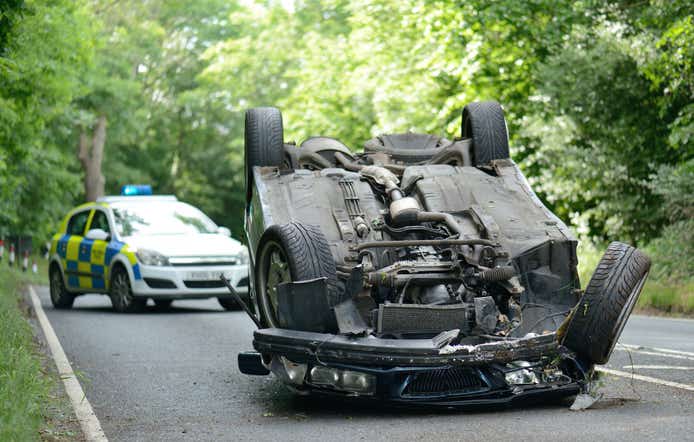Compare insurance quotes for performance cars
Get a quote in minutes and see what you could save on your car insurance.
Find your policy in 3 simple steps
Enter your details
Get personalised quotes in minutes by providing a few car and driver details.
Compare quotes
Find the car insurance that's right for you by exploring our best deals.
Apply and save
Start saving money and apply with your chosen provider.
Find the performance car insurer that suits you
Get a detailed insight into the top performance car insurance providers or cast your net wider by viewing all car insurance companies...
 Admiral
Admiral AA
AA Churchill
Churchill Hastings Direct
Hastings Direct Quotemehappy
Quotemehappy RAC
RAC Tesco Bank
Tesco Bank AXA
AXA
Can you get cheaper performance car insurance?
If you answer yes to all these questions, you might...
- Is your performance car factory standard? Insurers get wary when owners tinker with engine management and exhaust systems to get more power and faster acceleration.
- Do you only drive your high performance car for pleasure? Business use and, eve, commuting, increases the risk of claims because you might be driving in busy traffic.
- Have you got a clean driving licence? Watch that accelerator pedal! One speeding fine might not bump up your premium but any more will. Build up that no claims bonus.
- How secure is your high performance car? Theft is a big risk factor for high-performance sports cars. The better your security, the lower your car insurance premiums.

What is the difference between third party and comprehensive car insurance? - Uswitch
Third party vs. comprehensive insurance - which is which? You might expect third party only to be the cheapest form of insurance policy - after all, third party offers the least protection of all types of car insurance.
Car insurance for performance cars FAQs
What is a sports car?
A performance car - also known as a sports car - is a car that incorporates into its design some of the performance characteristics of a racing car.
Racing cars are designed for speed, so a performance car will have quicker acceleration, a fast top speed and more responsive brakes and steering. These are features that mean the car is statistically more likely to be involved in an accident than a car without them. Performance cars are also attractive to thieves.
- A coupe, roadster or GTS would be considered a performance car - for the purposes of underwriting
- Traditional performance cars are compact and aerodynamic
- Demand for spacious performance vehicles has increased
- Larger cars including sports saloons and SUVs are also considered performance cars
Do I need separate performance car insurance?
Drivers of sports cars expect to pay more for car insurance. Shopping around for quotes can help source cheaper cover but most insurers consider such cars more likely to attract frequent insurance claims.
All cars are split categorised into 50 separate car insurance groups - the higher the car's group number, the more likely it is to be expensive to insure.
Insurance groups are based on how much damage is caused in a standard low-impact crash, how many parts or and how long it takes to repair, plus a look at the car's performance and security. Performance cars often use expensive light-weight materials in complex designs, making fixing even minor damage hugely expensive and time-consuming.
Do I need a performance car insurance specialist?
You might want to consider looking for an insurer that specialises in high performance cars, which is why you need to shop around for quotes.
A performance car is likely to require a specialist garage to carry out any repairs - not one of the insurer's panel of preferred suppliers working on fixed price contracts.
Add to this that they tend to be driven faster and more aggresively and have bigger impact crashes - and they get stolen more often - and it's no surprise car insurers add a big weighting to premiums.
Why is performance car insurance more expensive?
The make and model of your car can have a big influence on high performance car insurance premiums. Insurers use technical data on the costs of repairs and time it takes to repair a vehicle and add to that their own experience of claims involving those cars.
A Group Rating Panel, made up of members of the Association of British Insurers and the Lloyd’s Market Association, meets monthly to set the ratings for new cars.
Porsche has 10 different models in car insurance group 50, while Mercedes-Benz has 22. Different versions of each model tend to sit within the same group because the fundamentals of the cars do not change just because the trim or styling alters.
The ratings are based on:
- The cost of 23 common spare parts – often expensive high-tech materials in sports cars
- The time taken to carry out basic repairs – longer, more complex work, often done at specialist garages
- New car values – at the high end of car prices
- Acceleration and speed – why sports cars are so much fun
- Safety – who wants semi-autonomous driving in a sports car?
- The risk of being stolen – sadly a big problem for desirable performance vehicles
Insurers then add to this their own experience of each car model’s claim history – the frequency and cost of claims.
How do I find the best performance car insurance?
The best car insurance is the one which matches your needs, it isn’t always necessarily the cheapest. For example a higher excess may work out cheaper but you need to be able to afford the cost of any repairs needed if you do have to pay out. You also need to work out what other extras you may need.
What are the cheapest performance cars to insure?
According to Admiral Insurance these are the 10 performance cars with the cheapest average premium between July and December 2019*
*The models listed combine cars of all ages and values, including both hard-top and roadster equivalents sharing the same name.
- Porsche Boxster - £465.17
- Mazda MX-5 - £513.03
- BMW Z4 - £566.35
- Porsche 911 - £631.77
- Porsche Cayman - £637.14
- Toyota MR2 - £644.35
- Porsche Macan - £698.45
- Toyota Celica - £711.84
- Ford Mustang - £718.40
- Nissan GT-R - £834.03
How can I reduce the cost of performance car insurance?
As with all car insurance policies there are things you can do to reduce the cost of your car insurance premiums.
- Drive carefully: Points on your licence for speeding can increase your premiums, so drive within the law and careful driving can also help build up your no claims bonus.
- Drive fewer miles: If you use your performance or sports car at the weekend or on holidays, your cheaper premiums will reflect this reduced mileage.
- Avoid modifying your car: This will also increase premiums, although factory-fitted optional extras are fine. Before buying your car you should also check to see if the car’s engine or other parts have been modified in any way as modifications can make performance car insurance more expensive.
- Increase security: Some insurers refuse to insure high performance cars unless they have the necessary security features such as an alarm, immobiliser or a tracker. Also keeping your car in a locked garage or secure driveway rather than on the road will reduce your premium.
- Add an experienced driver to your policy: Adding another driver to your policy can also help to bring down the price of your performance car insurance, especially if they’re experienced and have a clean, safe driving record.
- Join a club: Joining an owner’s club could save up to 15% on specialist car insurance.
- Do an advanced driving course: You may even qualify for a discount if you have previous experience of driving performance models. Consider taking an advanced driving qualification.
Switching is faster and easier with Uswitch

Car Insurance comparison is powered by Confused.com which is a trading name of Inspop.com Limited who are authorised and regulated by the Financial Conduct Authority. Registered office; Greyfriars House, Greyfriars Road, Cardiff, CF10 3AL, registered in England and Wales 03857130. Please note, we cannot be held responsible for the content of external websites and by using the links stated to access these separate websites you will be subject to the terms of use applying to those sites. By using this system you are also agreeing to our Terms and Conditions and Privacy Policy. Uswitch is an intermediary and receives a percentage of the commission if you decide to buy through us. If you already hold an account with Confused.com, the information held for you will be available to help you complete your quote more quickly - you should check the information is still accurate and up-to-date.





